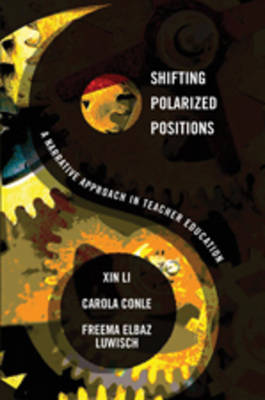Complicated Conversation
2 primary works
Book 24
Shifting Polarized Positions
by Xin Li, Carola Conle, and Freema Elbaz Luwisch
Published 26 August 2009
The authors of this book - teachers of foundation courses to pre-service and in-service teachers in Canada, Israel, and the United States - use culturally heterogeneous settings as points of departure for inquiry and cross-cultural encounters of difference, and illuminate how, among people of differing ethnic, religious, socio-economic, political, ideological, and gendered backgrounds, the telling of experiential stories can shift personally and culturally polarized positions. Key in the work documented here is the encouragement of narrative rather than argumentative modes of expression: the instructors found inquiry more likely to stay alive when they were able to access and incorporate both the mutual interest of and the personal tensions between their students. The book illustrates how personal dynamics can subtly move individual inquiry forward, and help alleviate animosity and polarization.
Book 42
In the tradition of educational narrative inquiry, this book explores diverse ways of thinking, writing and theorizing from auto/biographic experience, in language that is rooted in practice yet challenges the authoritative discourses of educational policy, theory and research. The book moves from first to third person accounts and from personal and family stories to narratives of teachers and teacher educators in the contested, multicultural environment of Israel. It highlights the multi-voiced, embodied lives of Israeli teachers from many cultures and identities and engages with literature around memory and embodiment, imagination, place and presence in teaching. The book will interest researchers in curriculum studies, teaching and teacher education, as well as scholars interested in issues of memory in historical and contemporary contexts.

